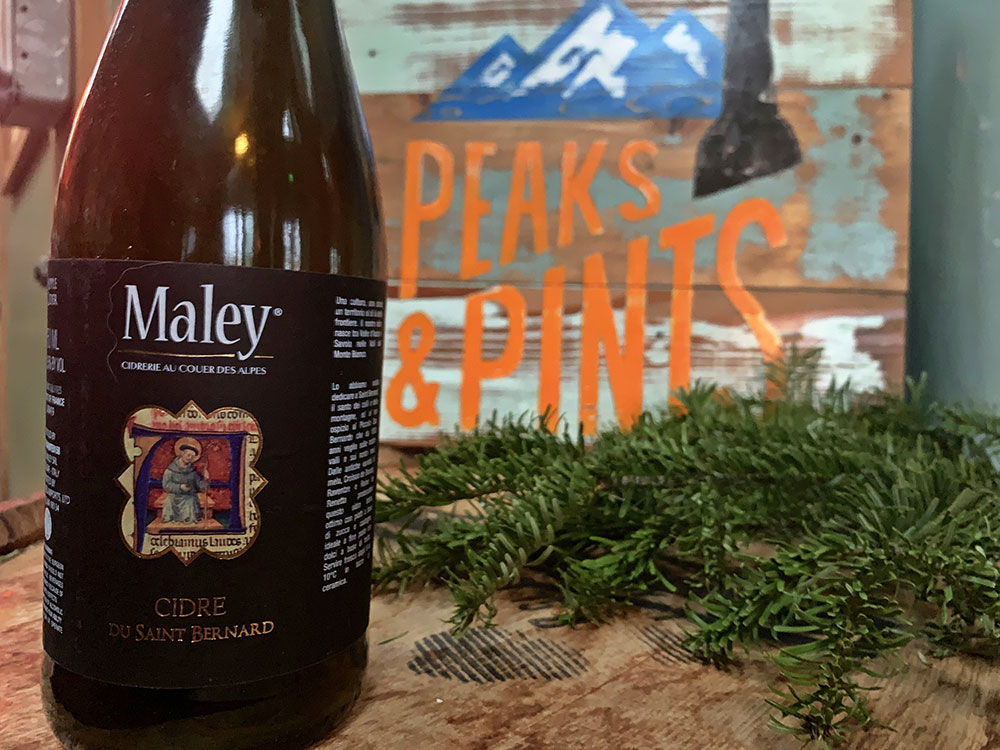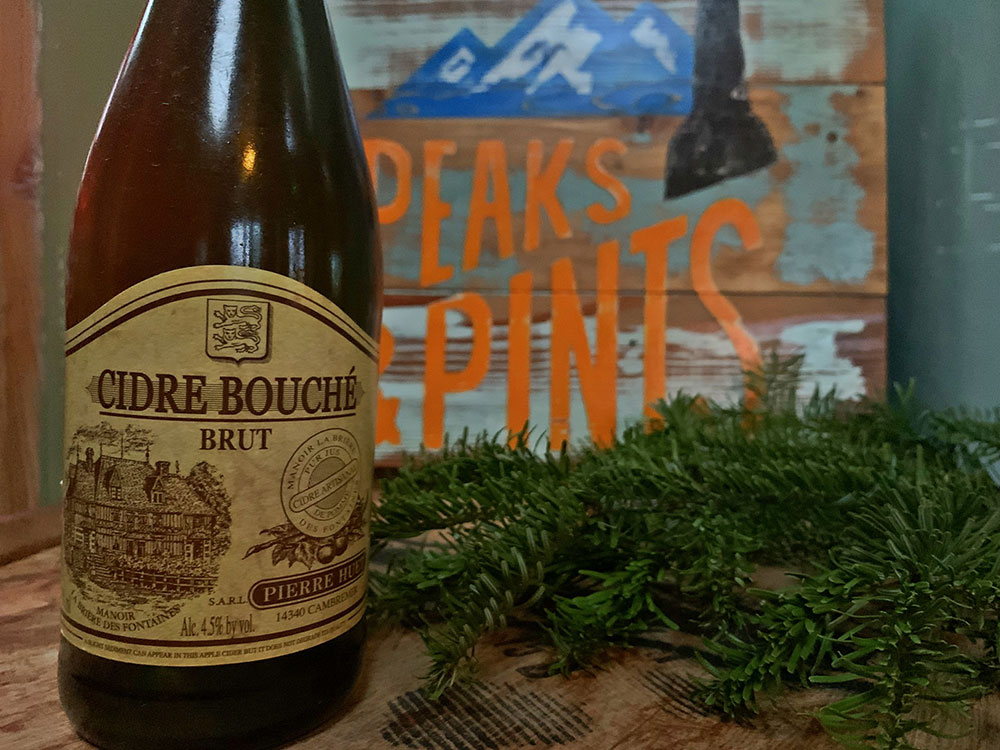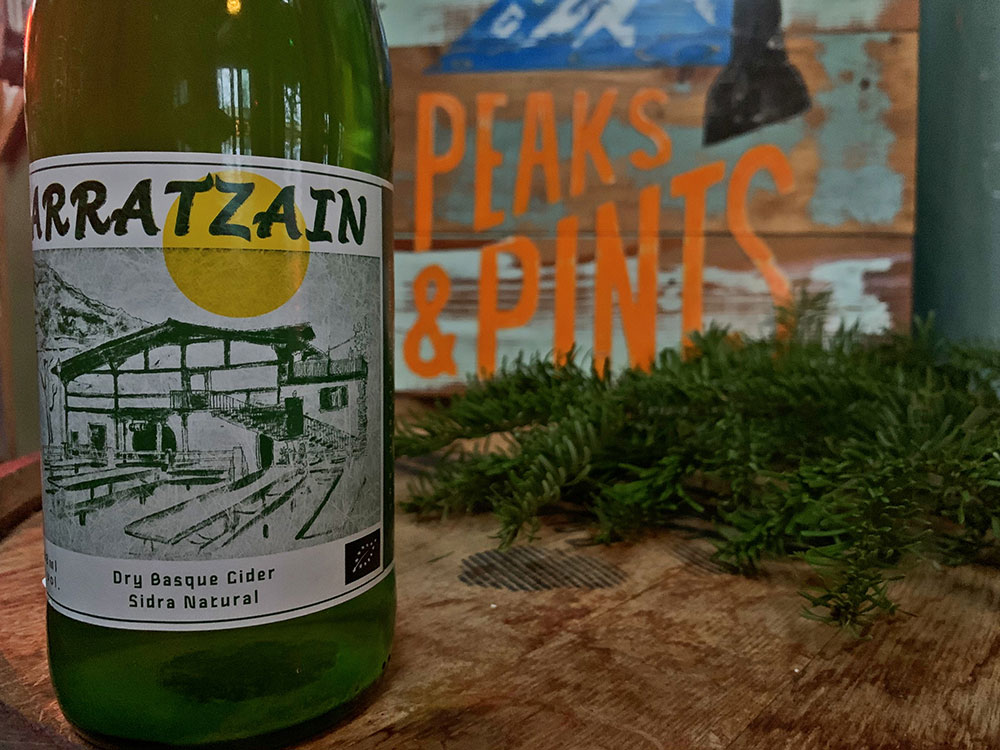 Apples were among some of the first crops grown in colonial America. Potted seedlings and bags of apple seeds were brought over on the Mayflower. The Bible-thumping Puritans were not teetotalers. Apple orchards in colonial America usually meant one thing: hard cider. Apples flourished in the fertile soil and friendly climate, and soon apples were a key part of most colonial farms and menus. A thirst for beer and the introduction of prohibition laws meant hard cider became an almost forgotten beverage, but it is currently undergoing a revival with small producers and large booze brands all getting in on the act. While boozy, apple-based beverages might seem like an all-American tradition, Spain, France, Germany, Austria, the United Kingdom, and beyond also have long traditions of cider production in unique regional styles. Perhaps the most distinctive international style is the sidra of Basque Country in northern Spain. There, cider houses called sagardotegiak have produced naturally fermented, unfiltered ciders since the 11th century. The French have been making cidre for centuries, particularly in Normandy and Brittany, and many of our own cider apple varieties originated on that side of the channel. Today’s Monday in-house cider flight is all about European ciders. Stop by our craft beer and cider bar, bottle shop and restaurant for Peak and Pints Monday Cider Flight: Europe.
Apples were among some of the first crops grown in colonial America. Potted seedlings and bags of apple seeds were brought over on the Mayflower. The Bible-thumping Puritans were not teetotalers. Apple orchards in colonial America usually meant one thing: hard cider. Apples flourished in the fertile soil and friendly climate, and soon apples were a key part of most colonial farms and menus. A thirst for beer and the introduction of prohibition laws meant hard cider became an almost forgotten beverage, but it is currently undergoing a revival with small producers and large booze brands all getting in on the act. While boozy, apple-based beverages might seem like an all-American tradition, Spain, France, Germany, Austria, the United Kingdom, and beyond also have long traditions of cider production in unique regional styles. Perhaps the most distinctive international style is the sidra of Basque Country in northern Spain. There, cider houses called sagardotegiak have produced naturally fermented, unfiltered ciders since the 11th century. The French have been making cidre for centuries, particularly in Normandy and Brittany, and many of our own cider apple varieties originated on that side of the channel. Today’s Monday in-house cider flight is all about European ciders. Stop by our craft beer and cider bar, bottle shop and restaurant for Peak and Pints Monday Cider Flight: Europe.
Peak and Pints Monday Cider Flight: Europe
 Maley Cidre du Saint Bernard
Maley Cidre du Saint Bernard
3.5% ABV
The name “Maley” comes from both an old Valdostano name for apple (Malus in Latin) and one of the pre-20th century names for Mont Blanc (Mont Malais). Maley is Gianluca’s revival of an old Valdostano tradition of cider-making that Mussolini quashed in the 1930s as part of his effort to eliminate anything not sufficiently “Italian” — cider being in the fascists’ view a French affectation. Maley is the only cider producer in Italy making artisanal cider with heirloom apples. This cider has a touch of funk and touch of fruit.
 Pierre Huet Cidre Bouché Brut
Pierre Huet Cidre Bouché Brut
4.5% ABV
Pierre Huet’s Manoir la Briere des Fontaine is a family-owned estate, located in Normandy, in the heart of the Pays d’Auge, which has its own Appellation d’Origine Contrôlée. They are renowned throughout the region for their Calvados, cider, and pommeau. Their Cidre Bouché Brut is a traditional, unpasteurized cider comes from the Calvados department in France. Bedan, Binet Rouge, Bisquet, Fréquin Rouge, Saint Martin, Rambault, Moulin à Vent, and Mettais, among others apple varieties, are used in its production. Time-honored cider methods, 100 percent pure apple juice fermented for four months, and bottle conditioning produces a dry, slightly bittersweet cider with flavors of green apple skin and ripe apples that’s slightly tannic on the tongue with a hint of tanginess.
 Arratzain Sidra Natural
Arratzain Sidra Natural
6% ABV
Located in the Usurbil mountains above San Sebastian, the Arratzain Inn has been home to cider production for nearly 500 years. In 2000, the Lizaso family purchased the inn, sidreria and the adjacent 3 hectares of orchards, followed by an organic certification in 2010. They produce natural sidra (Sagardo Naturala in Basque) in the cellar of their inn. They work only with native Basque apple varieties, and the tree plantings are carried out by what would be the equivalent of massale selection in the wine world. Arratzain’s Sidra Natural is an organic, unflitered, non-carbonated Basque sidra with traditional apple varieties picked for 60-percent acidity, 30-percent bitterness, and 10-percent sweetness.
LINK: Peaks & Pints beer and cider cooler inventory
